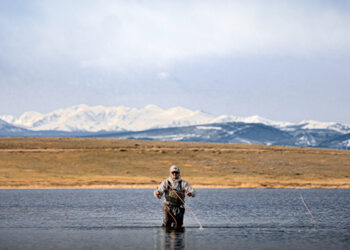Eric Nickel, the director of recreation at James Madison University answers a few of our questions.
1. How did you get started in the industry?
I went to graduate school at Ohio State with the intent of working in professional sports. When I enrolled in the Sport Management program, I met a bunch of friends that were working in recreational sports as graduate assistants. I got an assistantship in Recreation and Intramural Sports. As luck would have it, the NIRSA national conference was being held in Columbus, Ohio, that year. So I attended and met some amazing people, all of whom seemed to have a great passion for their work and seemed to enjoy life more than some of the people I had met in professional sports. It got me thinking that perhaps I should change my career goals. After a few tries, I landed my first professional job at UNC-Greensboro as an assistant director for facilities and sports clubs, and I was hooked.
2. Throughout your time at James Madison University (JMU), what is one of the biggest changes that has taken place at the recreation center?
I think the biggest change was in the establishment of a new vision and values for the program. In 1995, JMU was at the perfect place in time to develop a new role on campus and vision for the future. We were under construction on the first dedicated recreation center, the staff was going to grow from five members to 14 members, and the campus was already introducing student learning outcomes in its student affairs programs. We made a commitment to student learning and development, and had a chance to build a program from the ground up with the right mix of resources, energy and administrative support.
3. During your time at JMU, what is one accomplishment that you are most proud of?
I am most proud of the accomplishments of our people, both while they are here on campus and after they leave us. In many ways, the quality of the recreation and wellness programs are a by-product of our passion for student and professional development. We do not see our mission simply to provide recreation and wellness to our campus — we are educators committed to growing people. While we have a great number of former students and staff that stay in recreation and are now working in other collegiate recreation programs all over the country, we are also proud of the values and leadership that our people bring to their workplaces and communities outside of recreation. We call this “Spreading a little UREC,” and we challenge our graduates and former employees to make a difference in their chosen field, through application of the principles and values that they learned here.
4. What has been one of the biggest challenges?
In these times of ever-increasing costs for higher education, it is always challenging to procure and justify the resources necessary to bring about a vision. This is as it should be, and creates an expectation that programs and services be efficient and effective in producing the outcomes on our campuses that we promise to deliver. In our case it was establishing the cultural expectation that students will develop healthy lifestyle habits during their time here, and that one of the qualities of a Madison graduate is that they have the knowledge, skills and abilities to sustain a healthy lifestyle when they leave us.
5. What is one lesson you have learned that other recreation professionals can learn from?
You can have all of the hard skills in the world, but the top things that employees look for in a leader are someone who is visionary, inspiring, competent and who has integrity. In the absence of these, they may have trouble appreciating many of your other skills. So spend time developing these areas, and never compromise these key attributes in pursuit of any objective.
6. What is one fun fact about yourself that others may not know?
I was in the ABC broadcast booth in the Olympic Center Arena in Lake Placid during the “Miracle on Ice” hockey game, when Team USA defeated the Russians during the 1980 Olympics.










